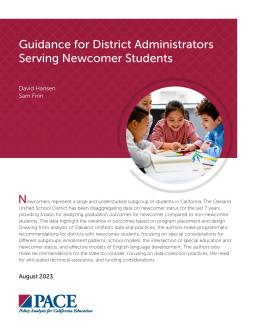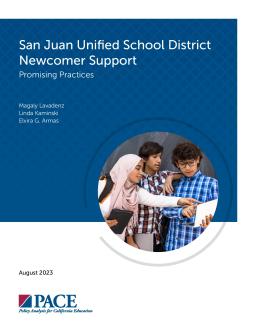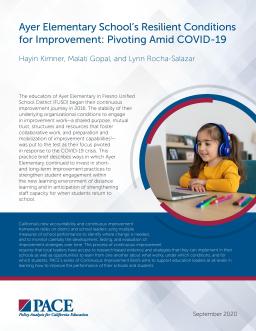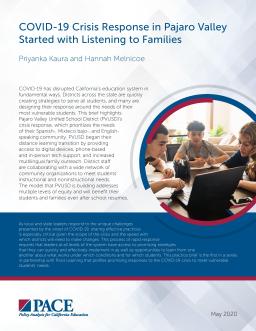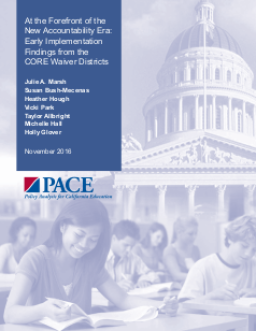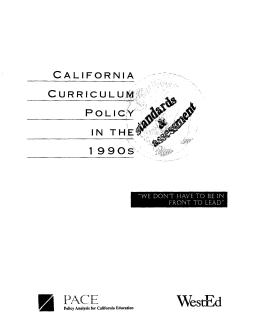Summary
Summary
Summary
Summary
This brief discusses how the Pajaro Valley Unified School District (PVUSD) in California is addressing the challenges of COVID-19 through family engagement and instructional access for English learners. The district has a history of serving all students through bilingual programming and a whole-child approach, and over 40% of its population are classified as English learners. PVUSD is a member of the national League of Innovative Schools and is known for its inclusive, data-driven decision-making.
Summary
Summary
California and the US are undergoing a cultural shift in school accountability policies towards locally-determined measures of school performance. Lessons can be learned from the CORE districts, which developed an innovative accountability system, emphasizing support over sanctions, and utilizing multiple measures of school quality. The CORE districts' measurement system and collaboration hold promise for improving local systems, but efforts to build capacity remain a work in progress.
